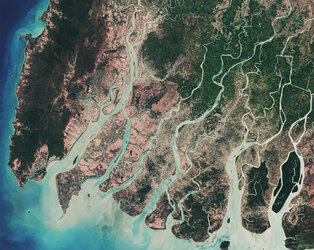Accept all cookies Accept only essential cookies See our Cookie Notice

About ESA
The European Space Agency (ESA) is Europe’s gateway to space. Its mission is to shape the development of Europe’s space capability and ensure that investment in space continues to deliver benefits to the citizens of Europe and the world.
Highlights
ESA - United space in Europe
This is ESA ESA facts Member States & Cooperating States Funding Director General Top management For Member State Delegations European vision European Space Policy ESA & EU Space Councils Responsibility & Sustainability Annual Report Calendar of meetings Corporate newsEstablishments & sites
ESA Headquarters ESA ESTEC ESA ESOC ESA ESRIN ESA EAC ESA ESAC Europe's Spaceport ESA ESEC ESA ECSAT Brussels Office Washington OfficeWorking with ESA
Business with ESA ESA Commercialisation Gateway Law at ESA Careers Cyber resilience at ESA IT at ESA Newsroom Partnerships Merchandising Licence Education Open Space Innovation Platform Integrity and Reporting Administrative Tribunal Health and SafetyMore about ESA
History ESA Historical Archives Exhibitions Publications Art & Culture ESA Merchandise Kids Diversity ESA Brand Centre ESA ChampionsLatest
Space in Member States
Find out more about space activities in our 23 Member States, and understand how ESA works together with their national agencies, institutions and organisations.
Science & Exploration
Exploring our Solar System and unlocking the secrets of the Universe
Go to topicAstronauts
Missions
Juice Euclid Webb Solar Orbiter BepiColombo Gaia ExoMars Cheops Exoplanet missions More missionsActivities
International Space Station Orion service module Gateway Concordia Caves & Pangaea BenefitsLatest
Space Safety
Protecting life and infrastructure on Earth and in orbit
Go to topicAsteroids
Asteroids and Planetary Defence Asteroid danger explained Flyeye telescope: asteroid detection Hera mission: asteroid deflection Near-Earth Object Coordination CentreSpace junk
About space debris Space debris by the numbers Space Environment Report In space refuelling, refurbishing and removingSafety from space
Clean Space ecodesign Zero Debris Technologies Space for Earth Supporting Sustainable DevelopmentLatest
Applications
Using space to benefit citizens and meet future challenges on Earth
Go to topicObserving the Earth
Observing the Earth Future EO Copernicus Meteorology Space for our climate Satellite missionsCommercialisation
ESA Commercialisation Gateway Open Space Innovation Platform Business Incubation ESA Space SolutionsLatest
Enabling & Support
Making space accessible and developing the technologies for the future
Go to topicBuilding missions
Space Engineering and Technology Test centre Laboratories Concurrent Design Facility Preparing for the future Shaping the Future Discovery and Preparation Advanced Concepts TeamSpace transportation
Space Transportation Ariane Vega Space Rider Future space transportation Boost! Europe's Spaceport Launches from Europe's Spaceport from 2012Latest
Gulf of Martaban, Myanmar
Thank you for liking
You have already liked this page, you can only like it once!
The Gulf of Martaban, an arm of the Andaman Sea located in southern Myanmar, is featured in this false-colour image captured by the Copernicus Sentinel-2 mission. The image has been processed in a way that included the near-infrared channel – which makes vegetation appear bright red.
Zoom in to see this image at its full 10 m resolution or click on the circles to learn more about the features in it.
The gulf, also known as Gulf of Mottama, is named after the port city of Mottama, formerly known as Martaban. The Gulf of Martaban is considered a unique estuarine mudflat environment that is home to a great variety of flora and fauna. Fed by sediment and nutrients from three major rivers (Sittang, Salween and Yangon), the gulf supports a number of species including marine fish, 150 000 migratory birds as well as supporting the livelihood of tens of thousands of people.
A notable characteristic of the gulf is that it has a tide-dominated coastline, with tidal ranges between six and seven metres. The mouth of the gulf, which is approximately 100 km wide, narrows into a funnel-shaped bay to produce a powerful tidal bore phenomenon that can reach heights of over a metre in the upper estuary. As a result, the tidal mudflats of the gulf are among the largest in the world.
The Sittang River, visible in the right side of the image, originates near Mandalay, Myanmar, and flows southward for around 420 km before emptying into the gulf. Dense vegetation can be seen in bright red, particularly in the left of the image.
The distinct rectangular shape, visible in the upper half of the image, is part of the Moeyungyi Wetland Wildlife Sanctuary, a designated Ramsar Site of International Importance. The site encompasses several artificial lakes and bodies (visible in black). One of the bodies of water appears in light blue most likely owing to eutrophication – the overabundance of algae, phosphorus and other plant nutrients.
The city of Yangon is visible in the bottom-left of the image, at the convergence of the Yangon and Bago Rivers. With over seven million people, Yangon is Myanmar's most populous city and its most important commercial centre. The city served as the country’s capital until 2006.
Sentinel-2 is a two-satellite mission to supply the coverage and data delivery needed for Europe’s Copernicus programme. The mission’s frequent revisits over the same area and high spatial resolution allow changes in water bodies to be closely monitored.
This image, acquired on 18 November 2020, is also featured on the Earth from Space video programme.
-
CREDIT
contains modified Copernicus Sentinel data (2020), processed by ESA -
LICENCE
CC BY-SA 3.0 IGO or ESA Standard Licence
(content can be used under either licence)

Earth from Space: Gulf of Martaban

Myanmar, Burma - MERIS, 25 February 2003

Yangon River in Myanmar (Burma)

Irrawaddy Delta, Myanmar















 Germany
Germany
 Austria
Austria
 Belgium
Belgium
 Denmark
Denmark
 Spain
Spain
 Estonia
Estonia
 Finland
Finland
 France
France
 Greece
Greece
 Hungary
Hungary
 Ireland
Ireland
 Italy
Italy
 Luxembourg
Luxembourg
 Norway
Norway
 The Netherlands
The Netherlands
 Poland
Poland
 Portugal
Portugal
 Czechia
Czechia
 Romania
Romania
 United Kingdom
United Kingdom
 Slovenia
Slovenia
 Sweden
Sweden
 Switzerland
Switzerland
























